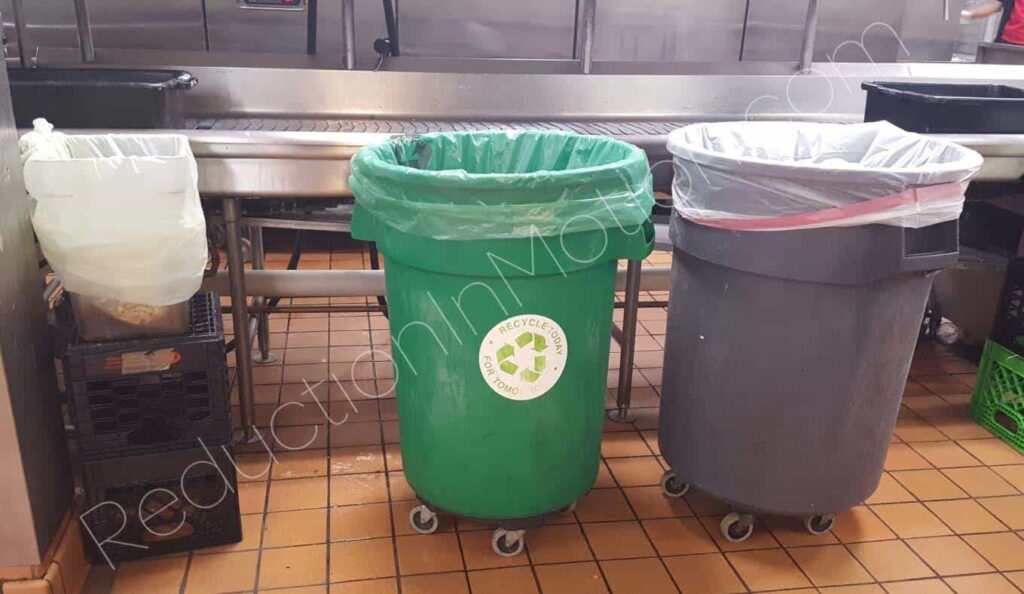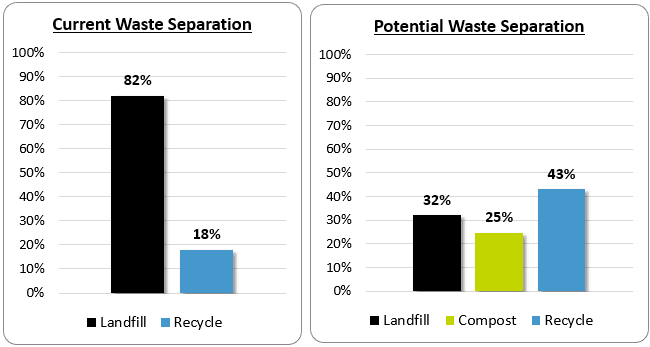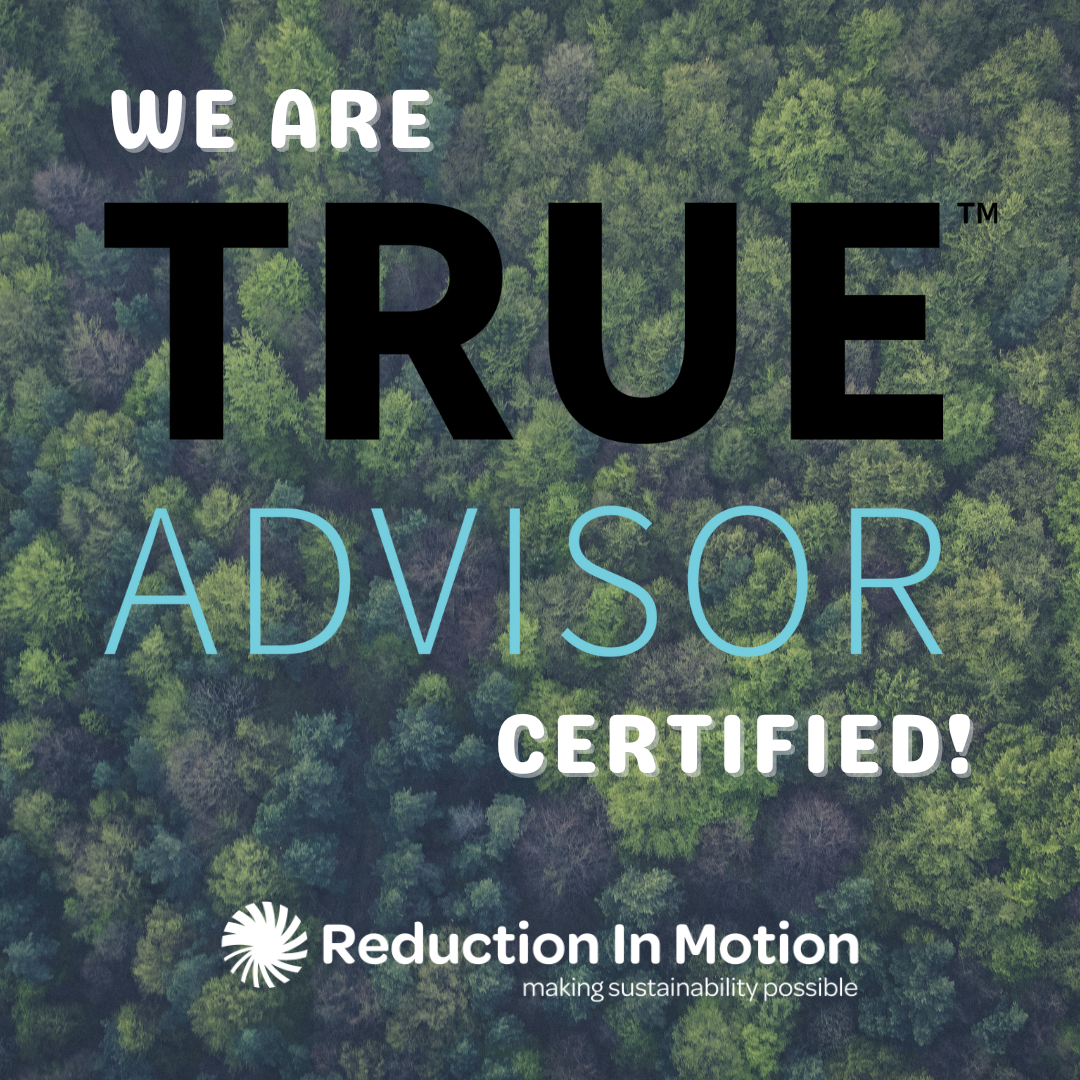Compost Program 101 (Part 2): Assessment

Now that we’ve got the basics of compost under our belt (click here to see the first blog in this series post in case you missed the intro to compost!), let’s move on to the first step of implementing a compost program: conducting an assessment.
First, we’ll start with a waste audit, which is exactly what it sounds like— we dig through your trash, sort it all out, and on the other end we come out with a lovely report (such as the sample below) showing the opportunity currently in your waste stream. The sample waste audit report below highlights the current mixed recycling rate of 18%. The waste audit highlighted the opportunity to divert a total of 25% as compost and 43% mixed recycling. Perhaps there’s a significant quantity of food waste from where fruits and veggies are chopped, or maybe people are throwing away leftover food into the trash once they’re finished eating in your café — whatever the case, a baseline audit will help to identify the next steps. We’ll be sure to keep any eye out for any other non-food specific items that could be composted- single-use service ware, paper towels, etc.

Second, let’s look at the waste flow and work flow of your facility. This simply means to observe which types of materials are generated and where they’re collected, from the kitchen itself to a café where it is eaten, even the offices, and bathrooms associated with the area. This gives us a sense of how the process is currently working (or not working), and how it can be adapted to handle a compost program. For example, having small collection buckets at many different work stations may work better than having a few large compost collection totes located throughout the kitchen. We’ll work with you and your employees to find the perfect fit for your unique set up.
Third, we’ll look at the space needed for composting. If you have available outdoor space, you can potentially do onsite composting yourself, or you could look into getting a biodigester in the kitchen. However, even if you don’t have space to start your own composting, doesn’t mean you can’t compost. There are compost vendors that can collect your totes full of food scraps and bring to an offsite composting facility. Once we gain a better understanding of your operation, we’ll gather all the options together given the space and capacity available at your site.
Ultimately, there are a lot of reasons why you should divert organic material as compost at your facility. Food waste is one of the heaviest parts of our trash—and keeping all of that volume and weight out of your trash waste stream can potentially save you money. Another benefit is the awareness. Once you’re collecting all your food materials in one specific tote, you’ll be amazed (and frankly a bit upset) by how much food waste is generated. This is where it can spark some new ideas on how to focus on source reduction, order par levels, and even donating supplies prior to them spoiling!
Now is the perfect time to start a composting program. Across the country food waste bans are becoming increasingly common on both the state and city level. California, Connecticut, Rhode Island, Massachusetts and most recently New Jersey all have some level of commercial food waste ban. Whether you’re in an area that now has a food waste ban, an area that will have one soon, or you just want to tackle the problems of food waste, we can help.
We love talking trash, and we’re excited to set up a site assessment at your facility! Interested to learn how we can help you? Email TrashTalk@ReductionInMotion.com to let us know how we can help you get started with composting or other waste diversion programs today!

Our team of sustainability and waste consultants work together to develop content for our site. Contact us to learn more about something we’ve written about or would like us to focus on in the future.

